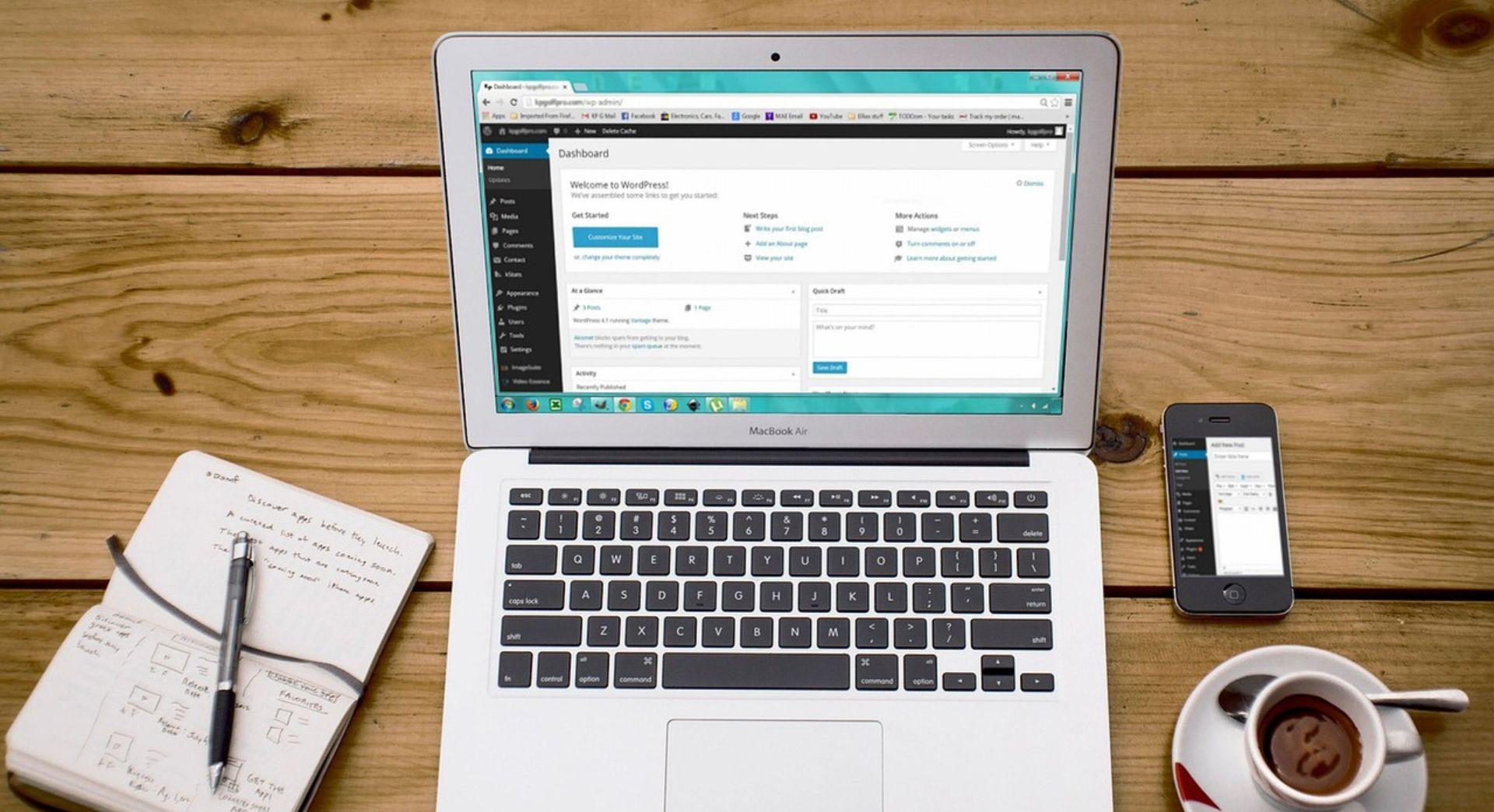Want to promote your small business locally? Whether you welcome customers on to your premise, offer a local delivery service, or operate out and about in a fixed local area, adding these quick and easy wins to your marketing strategy will help ensure people in your vicinity know about your business.
1. Make sure your website is mobile friendly
Mobile internet traffic now makes up over half of global online traffic, so your local business website needs to look good on mobile.
This becomes even more important if you’re the kind of local business that people look for when they’re on the move – a bar or restaurant, for example.
If you don’t already have a website that looks good on mobile, you can use GoDaddy’s Website Builder to get one quickly and easily.
2. Get on Google My Business
Google My Business is like a social network for local businesses. It's a crucial part of small business marketing and, if you’re not on there, you’re missing out.
Why? Because the information displayed on Google Maps is drawn from Google My Business, so it’s an important way to get your business found by people in your area. (If you’re using GoDaddy Websites + Marketing it’s even easier to create your Google My Business page, just follow this guide.)
You can find out more about the importance of Google My Business in this guide.
Important note: It’s vital that the details of your business’s name, address and telephone number are exactly the same everywhere they appear on the web. This includes your website, your Google My Business page and any other social networks or directories your business is on. This is because search engines use this information to identify your business and its location to help them decide when it should be shown to users in search results.
3. Optimize your webpages for local searches
If you offer plumbing services in Newcastle upon Tyne, make sure your website is optimized for that phrase. You'll probably want to go as far as having a webpage with the URL example.com/plumbing-services-newcastle (where is example.com is your domain name.)
The same applies for any local business, whether you're a barber in Ealing or a cafe in Liverpool. You don't have to (and shouldn't) go crazy and stuff keywords into your content. Just make sure what you do and where you do it is obvious to people (and therefore search engines).
You can learn more about website keywords and how to use them in this guide. This guide explains more about local search engine optimization.
4. Get on other business-related social networks
Google dominates search, so getting on Google My Business should be your priority. But one you’ve done that, you can set up profiles on other social networks if you haven’t already done so.
Bing Places for Business is one you should consider, as that’s where Bing Maps draws its data from.
Facebook is also a popular destination for people searching for local businesses, so you should consider setting up a page for your business if you haven’t already done so.
You can learn about getting on Bing Places for Business here, and about setting up a business Facebook page here.
5. Get listed on relevant business directories
There are hundreds of business directories around, but you should be careful about which ones you register your local business on.
Focus on well-known general directories, such as Yell, and relevant industry-specific directories. Not only do these sites have the potential to bring in customers directly, they can also help you with your local SEO efforts.
6. Monitor your reviews
Most of the sites we’ve talked about already allow customers to review your site, and it’s important that you keep an eye on what people say in them.
Not only will it let you identify areas of your business that you could improve, you’ll also be able to interact with people who had a bad experience so you can, where possible, make things right.
That last point is particularly important as people know that no business is perfect, so if they’re reading your reviews to get a feel of what kind of service you offer, seeing you trying to put things right for unhappy customers will give them added confidence.
You can encourage people to leave reviews, but don’t offer an incentive as this may breach a review site’s terms of service.
7. Team up with other local businesses
As a local business, you don't have to go it alone. Forming a group of local companies that can refer potential customers to each other is a great way to promote yourself.
You can also consider joining a formal organization such as your local chamber of commerce. By working together, small businesses can refer work to each other and pass on tips and advice on everything from reliable suppliers to value for money insurance.
8. Get involved in local community events
Getting involved with local community events is a great way to get your name out there.
You could consider sponsoring a local football team, or donating your services for free to a local charity. Remember, the vast majority of your customers will come from the local community, so it makes sense for you to build connections.
Getting involved with a cause that you feel passionately about will let you give something back to the local community, and will have the added bonus of promoting your business.
8. Make connections with local journalists
Local papers and local businesses both want to reach the same people, so it makes sense for you to make connections with journalists working in your area.
Of course, you can always take out ads in a local paper, but there’s nothing to stop your business getting “free” coverage if you’ve done something newsworthy. Local newspapers and local newspaper websites still attract plenty of attention. Plus, if you do something really interesting there's a chance your story will be picked up by other news outlets.
You can learn more about doing local PR for your small business in this guide.
9. Consider locally-targeted Facebook ads
Facebook ads allow you to target specific areas, making it a great way to reach potential customers. Paid ads can really boost your social media marketing efforts. You don’t have to spend a fortune, but make sure your ads give people a compelling reason to pay attention to them such as a special offer or similar. You can learn how to get started with Facebook ads here.
10. Consider adding local collection and delivery to your offering
Small businesses selling a product of any kind, including food and drink should consider adding local delivery and/or collection. A delivery option will particularly boost your appeal to locals who are unwilling or unable to make it to your premises in person.
If you do add delivery and/or collection don’t forget to let your existing and potential customers that this is an option.
If you’re using GoDaddy’s Online Store you can add delivery and/or collection options by following this guide. If you’re already using GoDaddy Website builder and would like to upgrade to Online Store to offer delivery/collection you can follow this guide.
If you’re using WordPress for your site, you can learn about creating an ecommerce website with WordPress here. If you’re using another platform you may need to speak to your service provider or web designer to discuss the best way to add collection/delivery to your site. Of course, you could always switch to Online Store with GoDaddy.
Summing up
The key to promoting your business locally is ensuring that you have a strong foundation in place.
That means before you do anything else, you should ensure your website is up to scratch, and that you’re on Google My Business.
Then you can start looking at other ways to promote your business in your local area.






